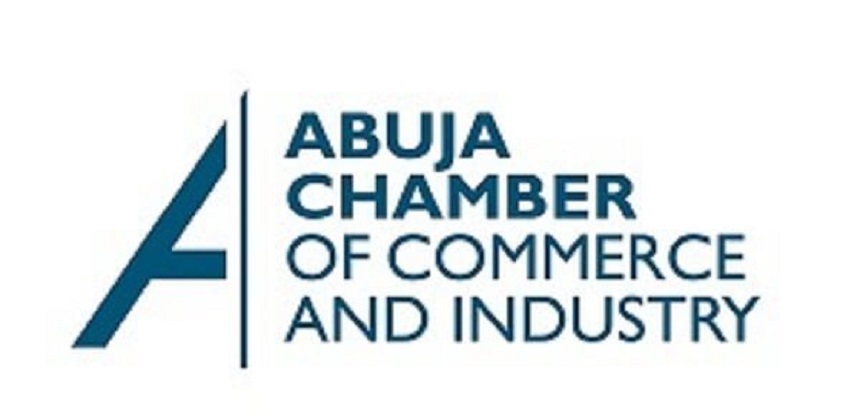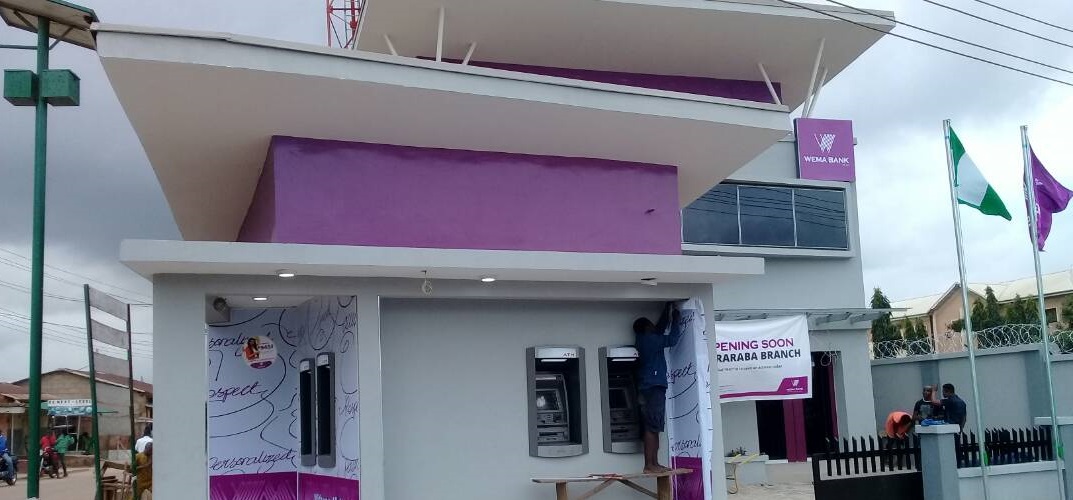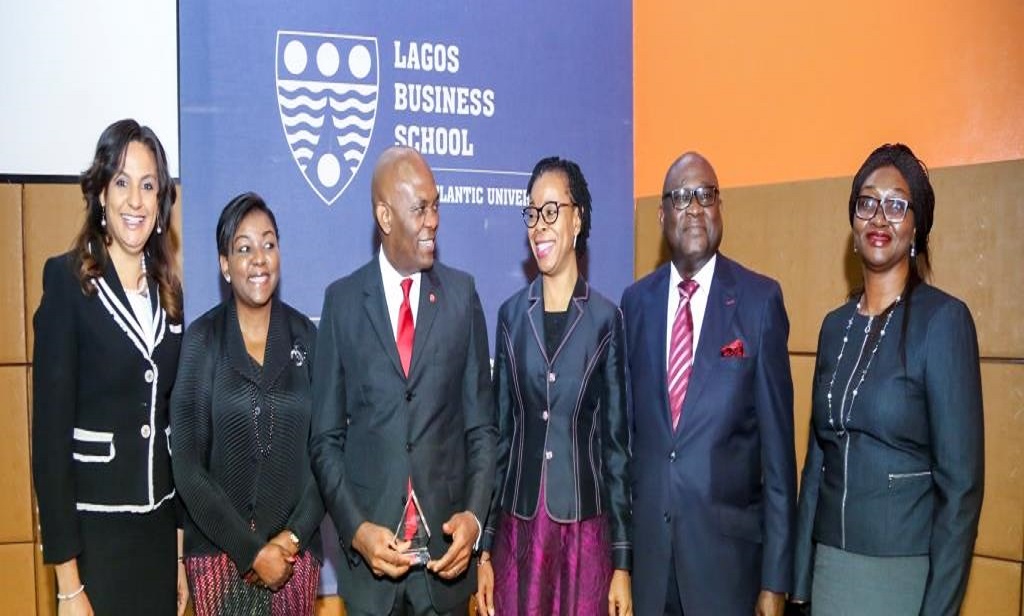Economy
Business Growth High on African Boardroom Agenda


By Dipo Olowookere
Africa’s CEOs are confident that the outlook for business on the continent remains positive notwithstanding the unpredictable economic and socio-political climate.
PwC’s Africa Business Agenda report shows that 85 percent of African CEOs (Global: 85%) are confident in their own company’s prospects for revenue growth over the next 12 months.
Despite the fact that only 30% of CEOs in Africa (Global: 29%) believe the global economy will improve in the next year, no less than 97% (Global: 91%) are confident about the prospects for their own company’s growth in the medium term.
Hein Boegman, CEO for PwC Africa, says: “This level of optimism is the highest recorded since we started our research on Africa CEOs in 2012. However, in the past year we have seen a change in the outlook for some countries as external developments impact many of the drivers of Africa’s growth.
“As countries around the globe try to make sense of the increased levels of risk and uncertainty that have gripped the world, Africa needs to continue rising by capitalising on all the opportunities that lie ahead.”
The report suggests that one of the reasons for such optimism on the Africa continent is that CEOs have learned to look for the upside and seize on opportunities that may arise in the face of uncertainty. In the wake of climate of muted growth, CEOs have also acknowledged that while they focus on organic growth and cost reductions, they also need to prioritise investment in new strategic alliances and joint ventures to expand their markets and grow their customer bases. According to the survey, organic growth (Africa: 80%; Global: 79%) and new alliances (Africa: 69%; Global: 48%) are the top activities CEOs are planning in order to drive corporate growth or profitability.
The Agenda compiles results from 80 interviews with CEOs across 11 countries in Africa and includes insights from business. The results are benchmarked against the findings of PwC’s 20th Annual Global CEO survey of 1 379 CEOs in 79 countries conducted during the 4th quarter of 2016. The Agenda provides an in-depth analysis and insights into how businesses are adopting to meet the challenges of operating in Africa.
Notwithstanding the current climate and challenges, it is notable that there remains a significant amount of potential to unlock more growth on the continent. African CEOs are looking to international markets for opportunities, with the US (31%), China (28%) and the UK (24%) considered the top three countries for growth. Johannesburg (36%), Lagos (16%) and Cape Town (14%) are considered the top three African cities for growth opportunities.
Main risks to doing business in Africa
Although the returns for doing business on the continent can be high, so too can the risks. Africa’s CEOs are working in difficult times – finding the right talent for their business, dealing with hurdles that come with working with governments, and managing expansion plans across the continent.
In addition, infrastructure remains a challenge as it lags well behind that of the rest of the world. More than two-thirds of African CEOs (69%) are concerned about inadequate basic infrastructure (Global: 54%) and a stronger focus on expanding power supply is required to solve one of the biggest challenges in the business environment.
Other clouds on the business horizon include exchange rate volatility (Africa: 90%; Global: 70%); social instability (Africa: 85%; Global: 68%); geopolitical instability (Africa: 79%; Global: 74%); unemployment (Africa: 79%; Global: 45%); and climate change and environmental damage (Africa: 64%; Global: 50%). For most of these factors, the level of concern among African CEOs is higher than the global average. In addition, over-regulation features on the list of concerns this year, with almost half (46%) (Global: 42%) of African CEOs saying they are “extremely concerned”.
CEOs also believe social instability resulting from inequality, an increasing tax burden, a lack of economic diversity with an overdependence on natural resources, and corruption remain problems in many countries.
Globalisation
Overall, globalisation has benefitted connectivity, trade and mobility. However, just over half of African business leaders say globalisation has done nothing to promote equality, in particular in closing the gap between rich and poor – in fact, this gap may well be widening.
A number of CEOs think it is vital to address social challenges. CEOs believe the corporate community can assist in spreading the benefits of globalisation more widely. The majority say the best way is to collaborate, particularly with government. “While Africa’s potential is undoubted, its achievement remains in question. Business, government and civil society will need to work harder to turn potential into tangible gains against the backdrop of a rapidly changing world,” Dion Shango, CEO of PwC Southern Africa adds.
Talent and technology
The forces of globalisation and technology are increasingly transforming the workplace. Over half of African CEOs (53%) are exploring the benefits of humans and machines working together in the workplace. Over a third of African CEOs (36%) are considering the impact of artificial intelligence on future skills needs.
In some sectors, automation has already replaced some jobs entirely. “As automation takes deeper root in the workplace, companies in Africa will have to increasingly focus on achieving the right cognitive re-apportionment between man and machine,” Shango adds.
However, as CEOs develop their services, they are finding that human interaction in the workplace is still important and place the investment in talent as a top business priority. Just over half of African CEOs (51%) plan to increase their headcount in the next 12 months. Conversely, 23% plan to cut their company’s headcount over the coming year, with more than two-thirds of expected reductions being attributed to automation and other technologies.
According to the survey results, no less than 80% of African CEOs (Global: 77%) see the availability of key skills as the biggest threat to growth (ahead of volatile energy costs and cyber threats). They are finding it particularly difficult to source soft skills – adaptability, problem solving, creativity and leadership.
Technology & trust
Technology has brought about a number of advancements in efficiency and the ease of doing business in Africa. No less than 91% of African respondents (Global: 90%) believe technology has changed competition in their industry in the past five years.
While the digital era offers a host of opportunities, it also creates significant challenges and constraints in the arena of privacy and security. Organisations are holding increasingly large volumes of personal data about their customers, suppliers and employees. According to the survey results, 71% of African CEOs (Global: 61%) say they are concerned about cyber threats. Furthermore, the vast majority of African CEOs (93%) (Global: 91%) believe that cybersecurity breaches affecting personal information or critical systems will negatively impact stakeholder trust levels in their organisations in the next five years. A high 96% of business leaders are also concerned that IT outages and disruptions could impair trust in their respective industries over the next five years.
As disruptions gain more speed, the ability to ensure trust, security and privacy across all interactions will become critical to businesses’ competitiveness. But almost two-thirds of African CEOs (61%) (Global: 59%) are concerned that they are not prepared to respond to a crisis in their business, should one arise.
“In the face of economic and socio-political uncertainty, we remain confident that the outlook for business in Africa remains positive. But to succeed, businesses need to adapt swiftly to change,” Shango concludes.
Economy
Naira Down Again at NAFEX, Trades N1,359/$1

By Adedapo Adesanya
The Naira further weakened against the Dollar in the Nigerian Autonomous Foreign Exchange Market (NAFEX) for the fourth straight session this week on Thursday, February 26.
At the official market yesterday, the Nigerian Naira lost N3.71 or 0.27 per cent to trade at N1,359.82/$1 compared with the previous session’s N1,356.11/$1.
In the same vein, the local currency depreciated against the Pound Sterling in the same market window on Thursday by N8.27 to close at N1,843.23/£1 versus Wednesday’s closing price of N1,834.96/£1, and against the Euro, it crashed by N8.30 to quote at N1,606.89/€1, in contrast to the midweek’s closing price of N1,598.59/€1.
But at the GTBank forex desk, the exchange rate of the Naira to the Dollar remained unchanged at N1,367/$1, and also at the parallel market, it maintained stability at N1,365/$1.
The continuation of the decline of the Nigerian currency is attributed to a surge in foreign payments that have outpaced the available Dollars in the FX market.
In a move to address the ongoing shortfall at the official window, the Central Bank of Nigeria (CBN) intervened by selling $100 million to banks and dealers on Tuesday.
However, the FX support failed to reverse the trend, though analysts see no cause for alarm, given that the authority recently mopped up foreign currency to achieve balance and it is still within the expected trading range of N1,350 and N1,450/$1.
As for the cryptocurrency market, major tokens posted losses over the last 24 hours as traders continued to de-risk alongside equities following Nvidia’s earnings-driven pullback, with Ripple (XRP) down by 2.7 per cent to $1.40, and Dogecoin (DOGE) down by 1.6 per cent to $0.0098.
Further, Litecoin (LTC) declined by 1.3 per cent to $55.87, Ethereum (ETH) slipped by 0.9 per cent to $2,036.89, Bitcoin (BTC) tumbled by 0.7 per cent to $67,708.21, Cardano (ADA) slumped by 0.6 per cent to $0.2924, and Solana (SOL) depreciated by 0.4 per cent to $87.22, while Binance Coin (BNB) gained 0.4 per cent to sell for $629.95, with the US Dollar Tether (USDT) and the US Dollar Coin (USDC) closing flat at $1.00 each.
Economy
Crude Oil Falls as Geopolitical Risk Around Iran Clouds Supply Outlook

By Adedapo Adesanya
Crude oil settled lower on Thursday as investors tracked developments in talks between the United States and Iran over the latter’s nuclear programme, weighing potential supply concerns if hostilities escalate.
Brent crude futures lost 10 cents or 0.14 per cent to close at $70.75 a barrel, while the US West Texas Intermediate (WTI) crude futures depreciated by 21 cents or 0.32 per cent to $65.21 a barrel.
The US and Iran held indirect talks in Geneva on Thursday over their long-running nuclear dispute to avert a conflict after US President Donald Trump ordered a military build-up in the region.
Prices had gained earlier in the session after media reports indicated the talks had stalled over US insistence on zero enrichment of uranium by Iran, as well as a demand for the delivery of all 60 per cent-enriched uranium to the US.
However, prices then retreated after the two countries extended talks into next week, reducing the immediate strike potential.
Iran’s Foreign Minister, who confirmed talks will continue next week, said Thursday’s talks were the most serious exchanges with the US yet, saying Iran clearly laid out its demand for lifting sanctions and the process for relief.
His counterpart from Oman, who is handling the talks, said significant progress was made in Thursday’s talks. The Omani minister’s upbeat assessment followed indirect talks between Iranian Foreign Minister and US envoys Steve Witkoff and Jared Kushner in Geneva, with one session in the morning and the second in the afternoon.
He will also hold talks with US Vice President JD Vance and other US officials in Washington on Friday.
The Trump administration has insisted that Iran’s ballistic missile program and its support for armed groups in the region must be part of the negotiations.
The American President said on February 19 that Iran must make a deal in 10 to 15 days, warning that “really bad things” would otherwise happen.
On Tuesday, he briefly laid out his case for a possible attack on Iran in his State of the Union speech, underlining that while he preferred a diplomatic solution, he would not allow Iran to obtain a nuclear weapon.
Meanwhile, the US continues to amass forces in the Middle Eastern region, with the military saying it is prepared to execute orders given by the US President.
Economy
Why Transparency Matters in Your Choice of a Financial Broker

Choosing a Forex broker is essentially picking a partner to hold the wallet. In 2026, the market is flooded with flashy ads promising massive leverage and “zero fees,” but most of that is just noise. Real transparency is becoming a rare commodity. It isn’t just a corporate buzzword; it’s the only way a trader can be sure they aren’t playing against a stacked deck. If a broker’s operations are a black box, the trader is flying blind, which is a guaranteed way to blow an account.
The Scam of “Zero Commissions”
The first place transparency falls apart is in the pricing. Many brokers scream about “zero commissions” to get people through the door, but they aren’t running a charity. If they aren’t charging a flat fee, they are almost certainly hiding their profit in bloated spreads or “slippage.” A trader might hit buy at one price and get filled at a significantly worse one without any explanation. This acts as a silent tax on every trade. A transparent broker doesn’t hide the bill; they provide a live, auditable breakdown of costs so the trader can actually calculate their edge.
The Conflict of Market Making
It is vital to know who is on the other side of the screen. Many brokers act as “Market Makers,” which is a polite way of saying they win when the trader loses. This creates a massive conflict of interest. There is little incentive for a broker to provide fast execution if a client’s profit hurts their own bottom line. A broker with nothing to hide is open about using an ECN or STP model, simply passing orders to the big banks and taking a small, visible fee. If a broker refuses to disclose their execution model, they are likely betting against their own clients.
Regulation as a Safety Net
Transparency is worthless without an actual watchdog. A broker that values its reputation leads with its licenses from heavy-hitters like the FCA or ASIC. They don’t bury their regulatory status in the fine print or hide behind “offshore” jurisdictions with zero oversight. More importantly, they provide proof that client funds are kept in segregated accounts. This ensures that if the broker goes bust, the money doesn’t go to their creditors—it stays with the trader. Without this level of openness, capital is essentially unprotected.
The Withdrawal Litmus Test
The ultimate test of a broker’s transparency is how they handle the exit. There are countless horror stories of traders growing an account only to find that “technical errors” or vague “bonus terms” prevent them from withdrawing their money. A legitimate broker has clear, public rules for getting funds out and doesn’t hide behind a wall of unreturned emails. If a platform makes it difficult to see the exit strategy, it’s a sign that the front door should have stayed closed.
Conclusion
In 2026, honesty is the most valuable feature a broker can offer. It is the foundation that allows a trader to focus on the charts instead of worrying if their stops are being hunted. Finding a partner with clear pricing, honest execution, and real regulation is the first trade that has to be won. Flashy marketing is easy to find, but transparency is what actually keeps a trader in the game for the long haul.
-

 Feature/OPED6 years ago
Feature/OPED6 years agoDavos was Different this year
-
Travel/Tourism10 years ago
Lagos Seals Western Lodge Hotel In Ikorodu
-

 Showbiz3 years ago
Showbiz3 years agoEstranged Lover Releases Videos of Empress Njamah Bathing
-

 Banking8 years ago
Banking8 years agoSort Codes of GTBank Branches in Nigeria
-

 Economy3 years ago
Economy3 years agoSubsidy Removal: CNG at N130 Per Litre Cheaper Than Petrol—IPMAN
-

 Banking3 years ago
Banking3 years agoSort Codes of UBA Branches in Nigeria
-

 Banking3 years ago
Banking3 years agoFirst Bank Announces Planned Downtime
-

 Sports3 years ago
Sports3 years agoHighest Paid Nigerian Footballer – How Much Do Nigerian Footballers Earn


















